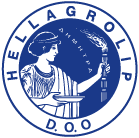- +30 213 003 7600
- +30 213 003 7600
- info@hellagrolip.rs


One of the greatest problems faced by the modern world is the severe impact that the existing system of energy management has.
Ever increasing consumption leads to both the gradual depletion of natural resources and the increase of carbon emissions, with knock-on effects on global warming and climate change, severely damaging the environment, as well as the competitiveness of the economy.
The shift towards a new energy model which should be based on saving resources, a more efficient usage of those resources, the replacement of conventional energy sources with renewable energy ones, and the promotion of innovative clean technologies, constitutes the greatest challenge of our time, for energy security, productive capacity, and sustainable development.

In the case of Greece, a more efficient energy management is of paramount importance, so as to disengage our energy system from costly imported energy and improve the energy balance. Along with reducing the excessive energy costs of Greek industries, it can be instrumental in the reduction of operating costs, advance competitiveness, and shape better prices for the consumer. It is actually a prerequisite in order to strengthen economic and investment activities and to save resources for the benefit of domestic growth.

The chemical industry in general requires high amounts of energy, as all the chemical reactions of synthesis are accompanied by energy conversions – consumption or release of energy – which may vary depending on the nature of the product.
During the production of fertilizers, large amounts of energy are consumed both at the stage of extraction and transportation of raw materials, as well as at the stage of processing and pure production. Road and sea transportation of the finished products to the users increases the consumption of energy in the sector of product placement and further burdens the energy balance.
Reducing energy spending, a more efficient energy management, and the integration of systems that allow for recycling reusing part of the energy consumed make up the demands that the fertilizer industry is called to manage today.

Energy policy, along with the overall quality, innovation, human resources, and environmental policy, comprise the sum of the production organization and are the main pillars of development of HELLAGROLIP, placing it among the top companies in this field on an international level.
To HELLAGROLIP, energy savings and a more efficient energy management are a prime concern during production design. Making full use of all the findings of scientific research, the company has developed and applies an integrated model of energy management in its units, which includes systems of:
With our energy policy, we maximize energy reuse at each intermediate stage of production and improve the energy balance of the overall production, thus achieving:
At HELLAGROLIP we know that any amount of energy saved has a positive economic effect both on the customers and users of our products and on the progress of the company and of our people.
Having adopted a series of energy practices that meet the highest requirements of European and National law, we contribute to the protection of the environment and the sustainable development of agriculture in our country.
At Dekagro we perceive our energy policy as a dynamic commitment to responsible agricultural practices, where the efficiency of our fertilizers is inextricably linked to the protection of the environment and the sustainable development of agriculture in our country.

One of the greatest problems faced by the modern world is the severe impact that the existing system of energy management has.
Ever increasing consumption leads to both the gradual depletion of natural resources and the increase of carbon emissions, with knock-on effects on global warming and climate change, severely damaging the environment, as well as the competitiveness of the economy.
The shift towards a new energy model which should be based on saving resources, a more efficient usage of those resources, the replacement of conventional energy sources with renewable energy ones, and the promotion of innovative clean technologies, constitutes the greatest challenge of our time, for energy security, productive capacity, and sustainable development.

In the case of Greece, a more efficient energy management is of paramount importance, so as to disengage our energy system from costly imported energy and improve the energy balance. Along with reducing the excessive energy costs of Greek industries, it can be instrumental in the reduction of operating costs, advance competitiveness, and shape better prices for the consumer. It is actually a prerequisite in order to strengthen economic and investment activities and to save resources for the benefit of domestic growth.

The chemical industry in general requires high amounts of energy, as all the chemical reactions of synthesis are accompanied by energy conversions – consumption or release of energy – which may vary depending on the nature of the product.
During the production of fertilizers, large amounts of energy are consumed both at the stage of extraction and transportation of raw materials, as well as at the stage of processing and pure production. Road and sea transportation of the finished products to the users increases the consumption of energy in the sector of product placement and further burdens the energy balance.
Reducing energy spending, a more efficient energy management, and the integration of systems that allow for recycling reusing part of the energy consumed make up the demands that the fertilizer industry is called to manage today.

Energy policy, along with the overall quality, innovation, human resources, and environmental policy, comprise the sum of the production organization and are the main pillars of development of HELLAGROLIP, placing it among the top companies in this field on an international level.
To HELLAGROLIP, energy savings and a more efficient energy management are a prime concern during production design. Making full use of all the findings of scientific research, the company has developed and applies an integrated model of energy management in its units, which includes systems of:
With our energy policy, we maximize energy reuse at each intermediate stage of production and improve the energy balance of the overall production, thus achieving:
At HELLAGROLIP we know that any amount of energy saved has a positive economic effect both on the customers and users of our products and on the progress of the company and of our people.
Having adopted a series of energy practices that meet the highest requirements of European and National law, we contribute to the protection of the environment and the sustainable development of agriculture in our country.
At Dekagro we perceive our energy policy as a dynamic commitment to responsible agricultural practices, where the efficiency of our fertilizers is inextricably linked to the protection of the environment and the sustainable development of agriculture in our country.
